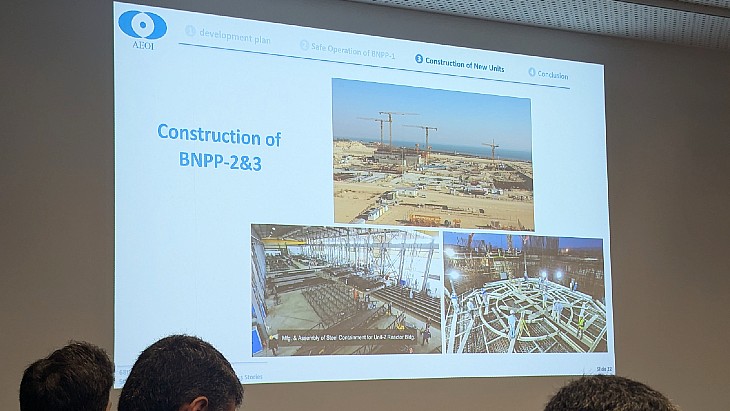TVA announces new nuclear programme
.jpg)
TVA's board ratified its approval of the programme at its first in-person meeting since the COVID-19 pandemic began. Advanced nuclear is one of several technologies it is exploring as it works towards its long-term goals of achieving a 70% reduction in carbon emissions by 2030 and 80% by 2035, without raising costs or impacting reliability, and its aspirational aim of achieving net-zero emissions by 2050.
"Achieving a carbon-free energy future is a shared priority and TVA is developing a diverse portfolio of clean energy sources - like advanced nuclear technologies - that will help address this challenge," TVA President and CEO Jeff Lyash said.
"We cannot meet the energy needs of tomorrow by making small changes in today's power system. We must work toward a net-zero carbon future today at a programmatic level and, combined with the efforts we've already undertaken over the past few years, that is what TVA's New Nuclear Program enables us to do," he added.
The programme provides a disciplined, systematic "roadmap" for the authority to explore advanced nuclear technology, both in terms of various reactor designs being proposed and potential locations where such facilities may be needed in the region to support future energy needs.
The process will include specific decision points that would allow it to withdraw from plans or projects if they are no longer feasible or not in the best interest of the region, the authority said. The programme will also coordinate collaborative efforts with other utilities, government agencies, research institutions and organisations on advanced nuclear technologies, helping spread the financial and technical risks associated with developing new, innovative solutions.
The US Nuclear Regulatory Commission in 2019 issued an early site permit (ESP) for the potential construction of small modular reactors at its Clinch River site near Oak Ridge, Tennessee. An ESP certifies that a site is suitable for the construction of a nuclear power plant from the point of view of site safety, environmental impact and emergency planning, but does not specify the choice of technology. A separate licence would be required to construct and operate a plant.
Reactor choices
More than a dozen reactor vendors have provided TVA with detailed information to support a programmatic environmental impact statement for Clinch River, including both light-water and non-light-water cooled reactors.
Lyash said the authority would continue to "support and examine" all of the proposed designs but believes that light-water SMR designs, which are "closely related" to TVA's existing large nuclear units, are more mature and closer to commercial deployment within the next decade.
"For that reason, we are currently in discussions with GE Hitachi to support their BWRX-300 light-water SMR design, which will help inform a future decision about potential deployment," he said.
The BWRX-300 is a 300 MWe water-cooled, natural circulation SMR with passive safety systems that leverages the design and licensing basis of GEH's ESBWR boiling water reactor, which has been certified by the US Nuclear Regulatory Commission. It is also undergoing a pre-licensing vendor design review by the Canadian Nuclear Safety Commission, and Ontario Power Generation in December announced its selection of the reactor for construction at its Darlington site, with a view to operation as soon as 2028.
The TVA is a corporate agency of the USA, providing electricity for 153 local power companies in Tennessee and parts of six surrounding states as well as providing flood control, navigation and land management for the Tennessee River system. The authority's existing nuclear fleet - three boiling water reactor units at Browns Ferry in Alabama, and two-unit pressurised water plants at Sequoyah and Watts Bar, both in Tennessee - is the third largest nuclear fleet in the USA and produces more than 40% of TVA's generation.
"TVA is a nuclear energy leader with extensive experience and expertise in building and operating nuclear facilities," Lyash said. "Clean, reliable advanced nuclear technologies will be an essential part of our region and nation's clean energy future."
_92619.jpg)

_84504.jpg)







_88592.jpg)

